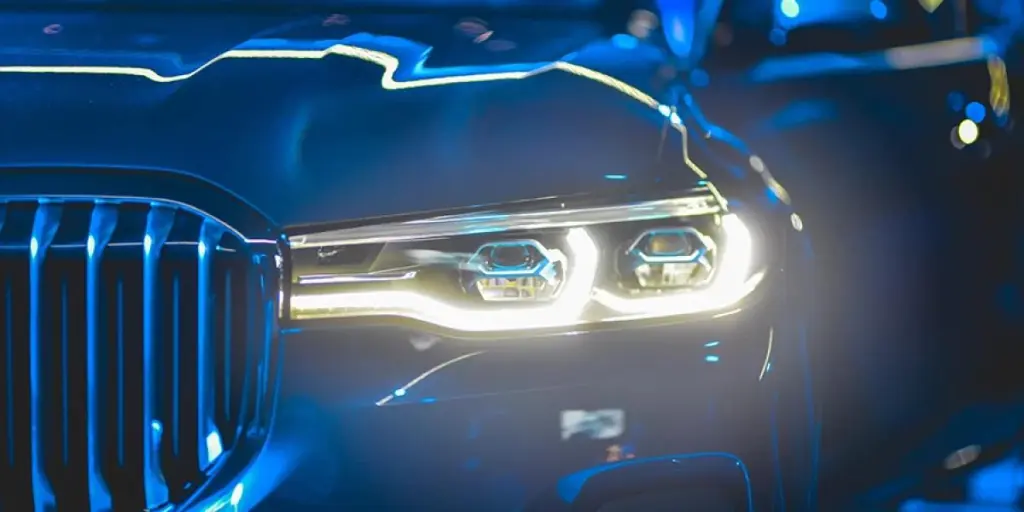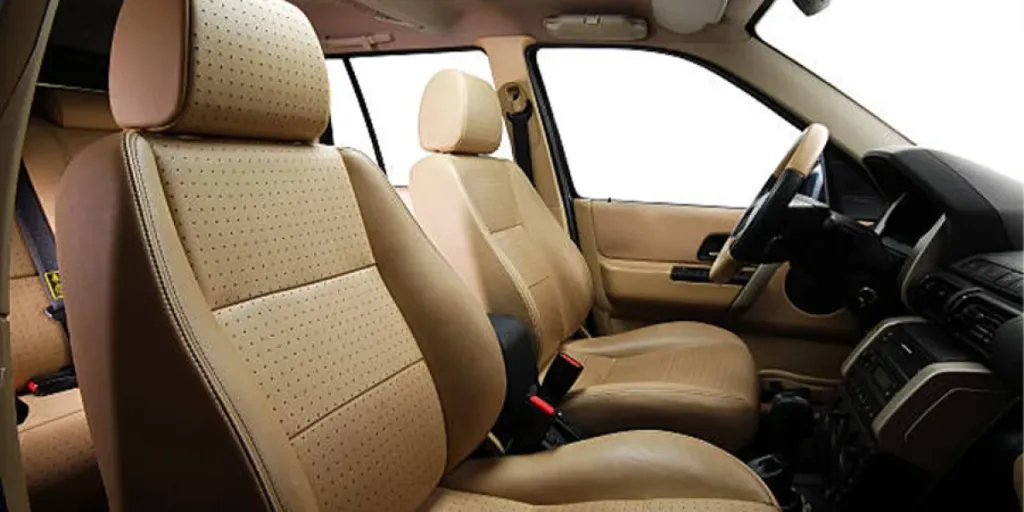Air filters are often overlooked automotive parts that can keep harmful contaminants from the vehicle. That said, there are two types, engine air filters and cabin air filters, and understanding the difference is vital for car owners. In this guide, we will look at things to know about air and cabin filters and when to change them. Keep reading to learn more.
Table of Contents
What is the difference between air and cabin filters?
How huge is the air filter market size?
How often should you replace your engine air filter?
How often should you change your cabin air filter?
Top signs you need to replace your air filter
Top signs you need to replace your cabin filter
Conclusion
What is the difference between air and cabin filters?
An air filter, or engine air filter, traps dust, particles, bugs, and other contaminants to ensure that only clean air enters the engine. This results in better engine performance and greater fuel efficiency. On the other hand, a cabin filter sieves the air circulating the vehicle’s cabin every time the heating and cooling systems are turned on, thus ensuring a healthy, safe, and comfortable driving experience.
How huge is the air filter market size?
According to Fortune Business Insights, the global market share of air filters was approximately USD 14.68 billion in 2022 and is projected to hit a 25.69 billion dollar market share by 2030, with a 7% CAGR (compound annual growth rate) over the 2022 to 2030 forecast period.
The global market for cabin filters was estimated to be worth USD 4.95 billion in 2023 and is expected to grow at a CAGR of 6.24% to USD 9.07 billion by 2030.
A global increase in automobile production, stricter pollution regulations, growing health concerns, and the rising demand for comfort cabin systems have driven this growth. The Asia Pacific sector has dominated the market, followed closely by the North American and European segments.
How often should you replace your engine air filter?
When the air filter traps debris getting its way into the engine, contaminants can accumulate, thus a need for replacement. But how often a change is required depends on the type of vehicle. Additionally, car owners who drive their vehicles on dirt roads or in areas with large amounts of air pollutants may need to replace their filters more often. In most cases, changing the air filter every 12,000 to 30,000 miles is recommended.
How often should you change your cabin air filter?

Like air filters, cabin filter replacement depends on the type of vehicle, make, model year, and driving style. Car owners should change their cabin filters upon noticing a change in air quality inside the cabin, but this can be subtle and difficult to notice.
Generally, car owners are recommended to replace them every 20,000 to 30,000 miles. Drivers should check their car manual to estimate when a replacement is due. They can also consult a mechanic for advice.
However, those who live in areas with excess smog or pollen and have sensitive breathing or allergies are advised to replace their cabin filters more often.
Top signs you need to replace your air filter
Below are the reasons that may call for car filter replacement:
1. The engine light is on
A check engine light on the dashboard indicates that there are problems with the engine that need to be addressed as soon as possible. When the light turns on, one of the reasons could be a dirty air filter. A dirty air filter affects engine performance. Therefore, when this happens, a need for a new one is imminent.
2. The air filter is dirty

Drivers can also check for signs of a dirty air filter on their own to see if there is a need for replacement. New filters have a white or off-white color. If a different color is noticed, such as brown, black, gray, or it’s full of debris, users should change it immediately.
3. Reduced fuel efficiency
One of the most common signs of a bad air filter is reduced gas mileage. When the air filter gets clogged with dirt, the right amount of air that’s supposed to enter the engine is restricted, which makes the engine overwork. This leads to high fuel consumption to produce the same amount of power. If the vehicle makes abnormal fuel stops, a new air filter could solve the issue.
4. Jerking movements when accelerating
When a driver steps on the accelerator and notices the car jerking forward, it is an indicator that the air filter is bad. The reason is that the engine does not get the right air and fuel mixture ratio, which limits the vehicle’s performance. Replacing a new filter should bring a halt to this problem.
5. Misfiring and starting issues

Car owners may experience difficulties when starting their car. The vehicle will idle roughly and misfire.
It happens when an inadequate amount of air passes through the filter and unburnt fuel in the form of soot accumulates in the spark plugs. The soot accumulation in turn prevents them from producing the spark required for combustion or operating in the right way as they should.
6. Strange engine sounds
When an engine begs for clean air, it starts making odd engine sounds. Limited air supply to the engine leads to incomplete combustion as the engine struggles to function properly.
Car owners are likely to hear popping, coughing, and splattering sounds from the engine area. In addition, incomplete combustion soot results in accumulation on the spark plugs, damaging them and producing strange sounds. This is a call to replace the engine air filter.
7. Black smoke or fumes from the exhaust pipe
The smell of gasoline in the vehicle could be catastrophic. Lack of enough air in the engine leads to incomplete combustion and exits as black smoke from the exhaust pipe.
Flames getting out of the exhaust pipe emerge from the heat, igniting the burned fuel. If these signs are noticed in a vehicle, owners are advised to take it to the nearest qualified technician for diagnosis. In most cases, it’s caused by a dirty air filter.
Top signs you need to replace your cabin filter
Driving with a clean cabin filter is essential to keep the air that car occupants breathe fresh and unpolluted. However, these signs show that cabin filter service is overdue.
1. Unpleasant odors

If there is a bad smell when the AC is turned on, it could be a result of a filter clogged with dust, pollen, bugs, and other contaminants trapped when driving. A clean cabin filter ensures that the air is clean, especially when driving for long trips.
2. Decreased airflow
Among the things that vehicle owners notice when the cabin filter is wearing out is reduced airflow from the AC vents. If the air from the HVAC system is not blowing as it should, it is an indicator that accumulated debris in the filter is blocking air from flowing the right way and not a problem with the system itself.
3. Frequent sneezing and allergies
When car occupants often find themselves sneezing quite often in a car, they should not put the blame on the season. A dirty or clogged cabin filter can let in trapped pollen and other allergens into the vehicle, which can potentially cause allergic reactions.
4. Visible dirt and debris

Checking the cabin filter for signs of dirt and debris will help tell if a replacement is due soon. Car owners should note that air filters are not only used to purify air, but they also assist in the proper functioning of the vehicle air conditioning unit.
5. Foggy windows
A congested cabin filter leads to insufficient airflow. This can lead to the windshield and windows getting icy and foggy. Replacing the old one with a new one should help clear the fog.
Conclusion
The engine air filter and cabin filter are crucial car accessories that have a significant impact on the normal operation of a vehicle. Manufacturers recommend replacing them between 12,000 and 30,000 miles, depending on the car or model. However, it is important to watch for the signs we have discussed above to know when to replace one or both filters. To learn more about the various air filters available for sale in bulk, visit the Chovm.com website today.





 Afrikaans
Afrikaans አማርኛ
አማርኛ العربية
العربية বাংলা
বাংলা Nederlands
Nederlands English
English Français
Français Deutsch
Deutsch हिन्दी
हिन्दी Bahasa Indonesia
Bahasa Indonesia Italiano
Italiano 日本語
日本語 한국어
한국어 Bahasa Melayu
Bahasa Melayu മലയാളം
മലയാളം پښتو
پښتو فارسی
فارسی Polski
Polski Português
Português Русский
Русский Español
Español Kiswahili
Kiswahili ไทย
ไทย Türkçe
Türkçe اردو
اردو Tiếng Việt
Tiếng Việt isiXhosa
isiXhosa Zulu
Zulu